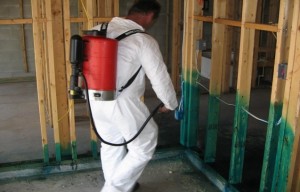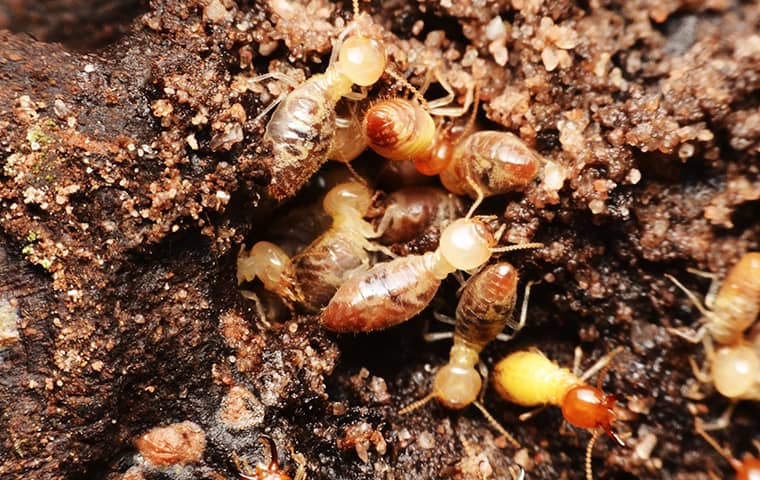Specialist Ant Control Services: Customized Therapies for Lasting Results
Specialist Ant Control Services: Customized Therapies for Lasting Results
Blog Article
Ecological Effect of Bug Control: Harmonizing Effectiveness With Sustainability
The ecological effect of insect control is an important issue that calls for a delicate equilibrium between achieving efficiency in handling insects and guaranteeing sustainability of our ecological communities. As we make every effort to secure our crops, homes, and health and wellness from the dangers posed by pests, the approaches we utilize can accidentally harm the atmosphere. From using damaging chemicals that seep into our dirt and water to the unexpected repercussions on non-target species, the consequences of conventional bug control methods are significant. Nonetheless, there are emerging approaches that provide expect a more sustainable strategy to pest management. These solutions not just objective to resolve the prompt bug troubles yet also consider the long-lasting wellness of our world.
Hazardous Chemicals in Pest Control
The utilization of unsafe chemicals in pest control poses substantial ecological and health risks that call for mindful factor to consider and mitigation techniques. Herbicides, pesticides, and chemicals are typically used to remove parasites, yet their prevalent application can cause unintended effects. These chemicals can infect dirt, water resources, and the air, impacting not only the targeted pests yet additionally beneficial bugs, wild animals, and humans.

To resolve these risks, integrated pest management (IPM) techniques are being advertised as an extra lasting option. IPM involves a mix of approaches such as organic control, habitat manipulation, and the targeted use chemicals as a last hope (ant control belmont nc). By embracing an alternative method to pest control, we can reduce the environmental and wellness effects associated with hazardous chemicals while properly handling pest populations
Influence On Non-Target Types
Considering the unplanned repercussions of pest control approaches, the effect on non-target varieties is an essential element that calls for complete assessment. While parasite control steps intend to target particular parasites, other microorganisms in the ecosystem might be unintentionally affected. Non-target types, including beneficial pests, birds, animals, and also plants, can experience direct or indirect injury from chemical applications or biological control techniques.
Pesticides can have sub-lethal or dangerous effects on non-target types. For instance, insecticides created to combat a specific bug parasite may hurt pollinators like or all-natural killers such as ladybugs. Additionally, chemical deposits can build up in the setting, influencing non-target organisms over time. Similarly, biological control representatives, otherwise species-specific, can posture threats to unexpected targets, interrupting the environmental equilibrium.
To mitigate the influence on non-target species, incorporated parasite monitoring (IPM) strategies that emphasize a holistic approach to pest control are recommended. These methods prioritize using ecologically friendly practices, reducing harm to valuable microorganisms while effectively taking care of pest populaces. Performing complete risk evaluations and checking the results of insect control efforts are important action in protecting non-target types and promoting general ecological community health.
Soil and Water Contamination
Unintentional ecological effects of insect control methods expand past affecting non-target varieties, with substantial effects for dirt and water contamination - ant control services. Pesticides, herbicides, and chemical fertilizers made use of in parasite control can leach right into the dirt and pollute groundwater, posing a danger to both earthbound and marine ecological communities.
Water contamination is another important problem associated with pest control techniques. Runoff from farming fields treated with pesticides can bring these chemicals right into nearby water bodies, influencing marine microorganisms and water quality. Contaminants in water sources can have significant consequences, affecting not just aquatic life but also human health through the consumption of contaminated water or marine organisms. To mitigate soil and water contamination from bug control activities, incorporated bug monitoring strategies that prioritize sustainability and reduce chemical inputs are crucial.
Air Air Pollution From Pesticide Usage
Direct exposure to airborne chemicals during agricultural applications poses a significant issue for air contamination control actions. When pesticides are splashed onto crops, they can volatilize right into the air and form unpredictable organic compounds (VOCs) and other airborne pollutants. These chemicals can add to the formation of ground-level ozone, a significant component of smoke that can have destructive effects on human health, plant productivity, and overall air high quality. Additionally, chemical drift, where chemicals are carried by the wind to unexpected locations, can result in the contamination of neighboring ecosystems and water bodies.

Techniques for Lasting Insect Control
In the realm of agricultural methods, carrying out lasting parasite control approaches is extremely important for maintaining environmental balance and guarding crop yields. Sustainable insect control emphasizes making use of ecologically friendly methods to take care of parasite populaces effectively while reducing harm to non-target organisms and ecosystems. Integrated Insect Monitoring (IPM) is a widely taken on approach that combines biological, social, physical, and chemical control techniques to achieve long-term parasite management remedies.
One trick strategy in sustainable pest control is advertising biodiversity within agroecosystems. By boosting natural opponents of parasites, such as predators and parasitoids, farmers can minimize the need for synthetic pesticides. Crop turning and diversification are additionally efficient methods to disrupt pest life cycles and create less positive problems for pests to grow. In addition, utilizing pest-resistant crop ranges and employing strategies like trap cropping can aid reduce bug stress without relying heavily on chemical interventions. Ultimately, by incorporating these sustainable insect control strategies, farmers can attain an equilibrium in between pest management performance and environmental stewardship.
Conclusion
Finally, the environmental effect of insect control techniques should be very carefully thought about to balance efficiency with sustainability. Hazardous chemicals made use of in insect control can bring about dirt and water contamination, air contamination, and injury non-target types - termite control services. It is browse around this site vital to implement sustainable parasite control techniques to decrease these unfavorable results on the setting and advertise a much healthier ecological community for future generations
By taking on an all natural approach to pest control, we can minimize the ecological and wellness influences linked with hazardous chemicals while effectively managing pest populaces.

To reduce the air contamination created by pesticide usage, it is necessary to embrace incorporated pest management methods that prioritize the use of non-chemical insect control approaches, such as plant rotation, natural killers, and resistant crop selections. Lasting bug control highlights the usage of ecologically friendly methods to manage bug populations efficiently while decreasing damage to non-target organisms and ecological communities. Integrated Parasite Management (IPM) is a commonly taken on technique that integrates biological, cultural, physical, and chemical control methods to accomplish long-term bug management solutions.
Report this page